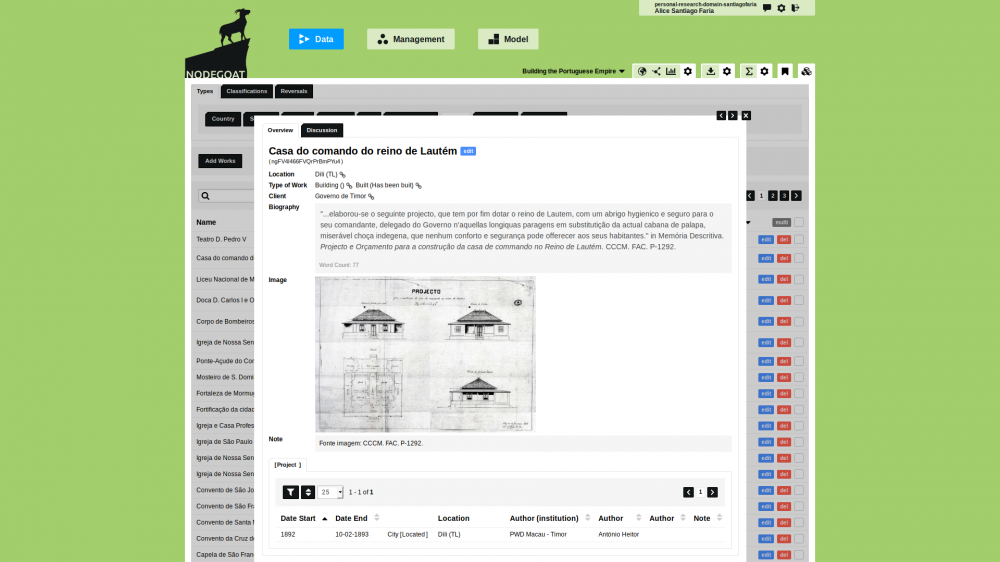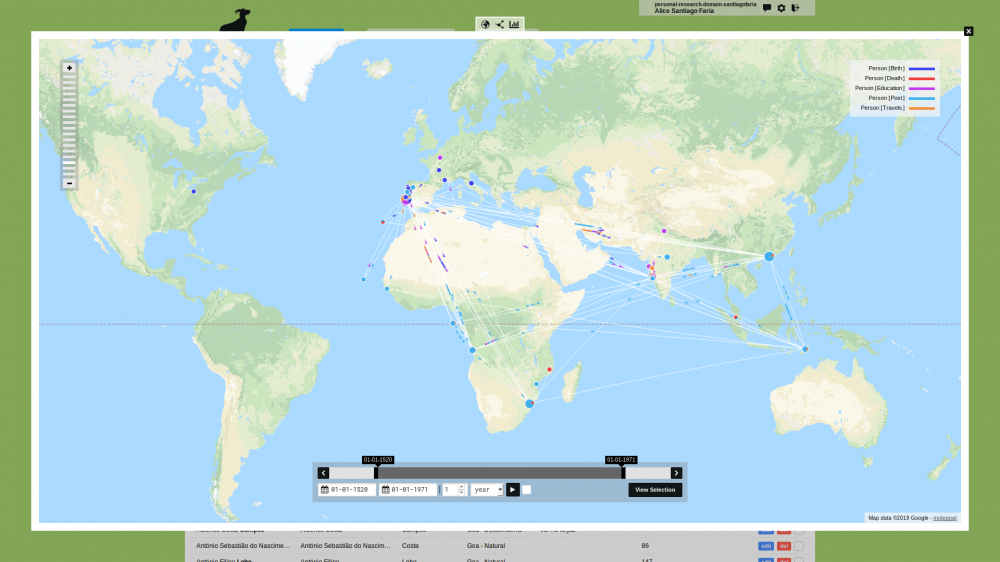Building the Portuguese Empire in the 19th Century
CORE Admin
Alice Santiago Faria (CHAM, FCSH, Universidade NOVA de Lisboa) I was looking for and experimenting network analysis software and hadn’t made up my mind – one of my problems was that no software seemed to respond to what I wanted to do and I had to shape my data and my questions to it – when I come across nodegoat.
I’m trying to explore a method of understanding the Colonial Public Works as a system of mobility, in which heterogeneous actors interact and shape one another in different ways, changing the built environment across geographies. So, one of my problems was that I wanted to work with a large heterogeneous dataset and to have control of the data. nodegoat was a perfect answer to my problems since is an object-oriented software and can be used to design your own datasets with great liberty. Moreover, it combines a set of unique possibilities that are really helpful for my work: the analysis of relations with spatial and chronological contextualization; it allows one to move smoothly from a micro (individual) to macro scale (collective) and back; it is possible to produce different types of analysis.
Furthermore, it is designed thinking of historical data - therefore, incomplete data is not a big problem - and it allows linking each piece of data (in many types, typical historical references but also linking data from the web, to images, etc. to its source, maintaining the “control” I was looking for.
This project has been funded by Fundação para a Ciência e Tecnologia through national funds from Ministério da Educação e Ciência.
Project website: buildingtheportugueseempire.org
